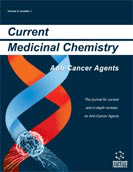Abstract
Prostaglandins (PGs) are involved in mediating or regulating many physiological as well as pathological processes. Important roles of PGs in the pathophysiology of carcinogenesis offer potentials of targeting PG synthesis and PG receptors in developing novel anti-cancer therapy. Although initial studies suggested direct growth inhibitory role of PGs from in vitro studies, it has been widely demonstrated that in general, PGs stimulate tumor growth. However, cyclopentenone PGs, especially 15d-PGJ2, which can activate peroxisome proliferator activated receptor (PPAR) γ, exhibited anti-proliferative and proapoptotic effects on many types of cancer cells. But recent studies indicate that growth inhibitory effects of the cyclopentenone PGs might also be a nonspecific effect due to its highly reactive cyclopentenone ring. We have explored the published studies on PGs to specify its known regulatory roles on tumor growth with an objective of targeting the PGs or pathways activated by these lipids in treating cancers.
Keywords: Prostaglandins, anti-cancer, cyclopentenone, peroxisome
 1
1

















